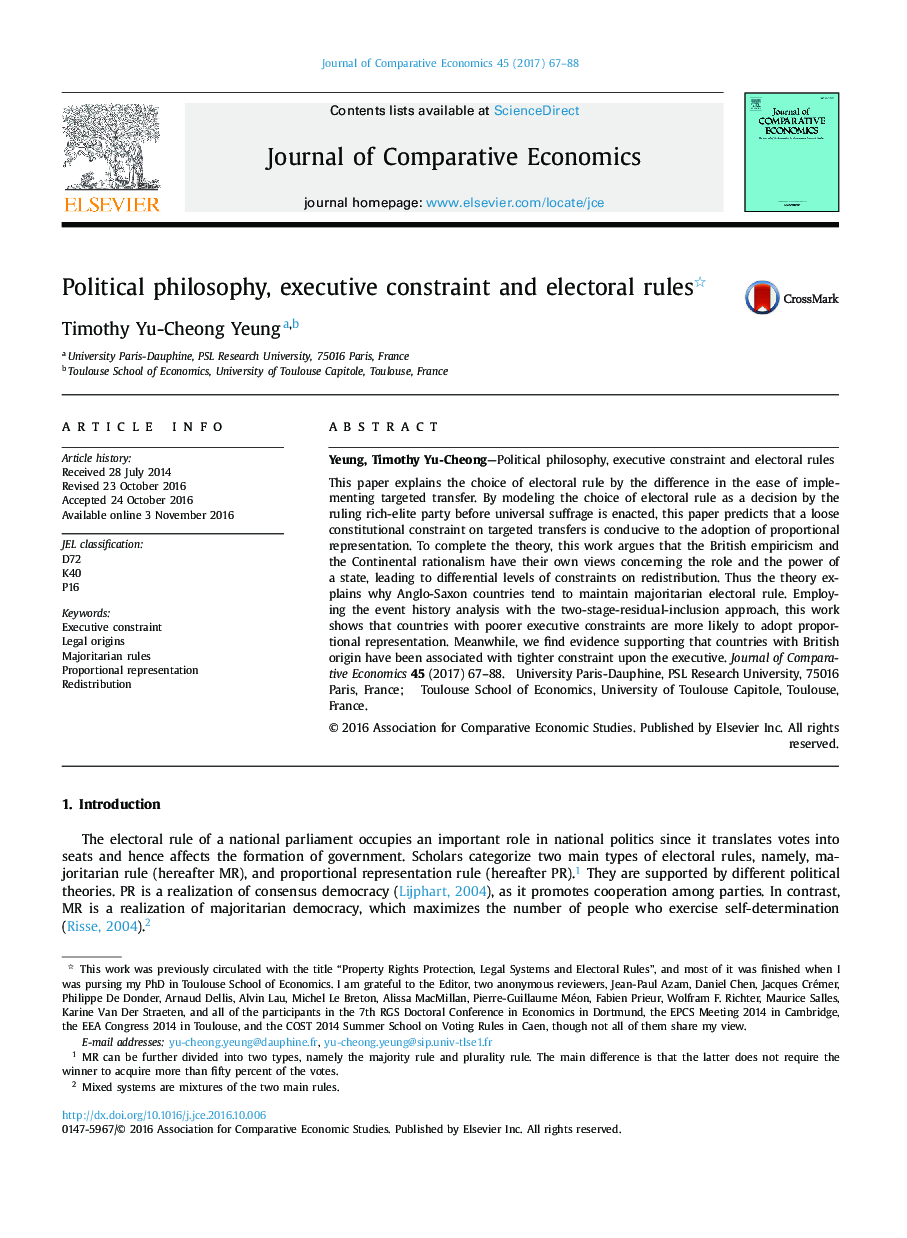| کد مقاله | کد نشریه | سال انتشار | مقاله انگلیسی | نسخه تمام متن |
|---|---|---|---|---|
| 5092105 | 1375914 | 2017 | 22 صفحه PDF | دانلود رایگان |

- This paper explains the choice of the electoral rule of the national parliaments.
- The incentive to adopt PR is stronger if the executive constraint is loose.
- French and German civil law countries were worse in terms of executive constraint.
- They are at the same time highly associated with PR adoption.
- An event history analysis is done and consistent evidence is found.
This paper explains the choice of electoral rule by the difference in the ease of implementing targeted transfer. By modeling the choice of electoral rule as a decision by the ruling rich-elite party before universal suffrage is enacted, this paper predicts that a loose constitutional constraint on targeted transfers is conducive to the adoption of proportional representation. To complete the theory, this work argues that the British empiricism and the Continental rationalism have their own views concerning the role and the power of a state, leading to differential levels of constraints on redistribution. Thus the theory explains why Anglo-Saxon countries tend to maintain majoritarian electoral rule. Employing the event history analysis with the two-stage-residual-inclusion approach, this work shows that countries with poorer executive constraints are more likely to adopt proportional representation. Meanwhile, we find evidence supporting that countries with British origin have been associated with tighter constraint upon the executive.
Journal: Journal of Comparative Economics - Volume 45, Issue 1, February 2017, Pages 67-88